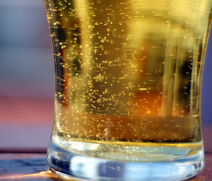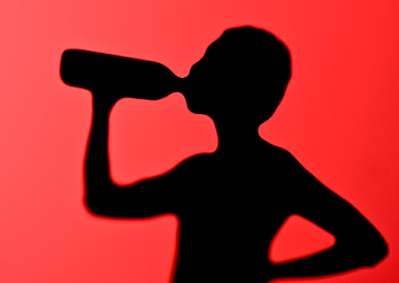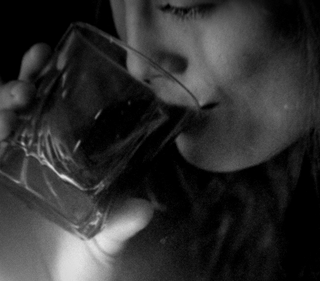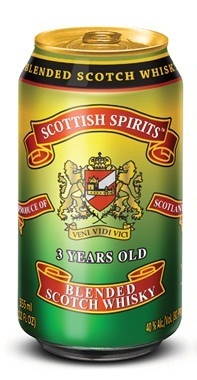Super-strength lager is global brewing’s ‘dirty secret’: charity

Annual UK sales of the three top-selling (but little marketed) high-strength lager brands, Carlsberg’s Special Brew and Skol Super, and AB InBev’s Tennent’s Super (all 9% ABV) total ₤104m ($166m).
But in late September, a campaign called ‘Reducing the Strength’ campaign (backed by the UK National Health Service locally and Suffolk Police) led to sales of lagers and ciders over 6.5% being removed from sale in many stores (including Tesco) in Ipswich, a town in Suffolk.
Homeless charity Thames Reach has campaigned for seven years to limit what it claimed was the serious health damage caused by the lagers, as well as very cheap super-strength ciders such as White Ace (7.5%) in 3l bottles, which it said was flooding London via cheap wholesale channels.
The charity warned that super-strength drinks could lead to brain damage and liver failure, and dubbed a social group of people in their thirties, forties, fifties ‘young olds’, who had poor health often found in much older people, poor mobility, memory loss and incontinence.
Unflattering comparison to heroin, crack…
Thames Reach said it had figures indicating that super-strength drinks were responsible for more deaths among the homeless people the charity supported than heroin or crack cocaine.
Meanwhile, it praised Heineken for taking super-strength cider White Lightning of the market the day after visiting a Thames Reach hostel and saw the effects of alcohol addiction first hand.
A spokesman for Thames Reach, Mike Nicholas, told this publication: “I saw over the weekend that C&C Group is going to focus on its main cider brand Magners, and abandon their super-strength portfolio such as Diamond White [cider].”
“That’s a fantastic move, and seems to indicate the larger parts of the drinks industry are starting to behave more responsibly in terms of super-strength drinks. And we’re not targeting premium strength drinks or calling for prohibition.”
Industry irresponsibility alleged
“But Carlsberg has bought into the super-strength market, by buying-out Skol Super,” Nicholas added. “So it’s very disappointing that Carlsberg has added to its portfolio rather than being embarrassed at having super-strength lagers in its drinks portfolio.
“These drinks aren’t consistent with any sense of corporate social responsibility. If government guidelines for daily recommended use are 3-4 units for men, 2-3 for women, how can you produce a single un-resealable can containing 4.5 units, which these lagers do?
“That seems irresponsible to me,” Nicholas said, adding that he agreed with journalist Martin Hickman of The Independent, who last week called super-strength lagers the “in some ways, the dirty secret of the global drinks industry”.
BeverageDaily.com asked Carlsberg and AB InBev for their opinion on the Ipswich sales ban, whether they felt it set an unfair precedent for their brands that could be replicated elsewhere in the country, and for their take on the phrase ‘dirty secret’.
‘Don’t target a single category’ – AB InBev
An AB InBev UK spokeswoman told BeverageDaily.com that the firm took its role as a responsible brewer seriously and was a founder member of the Portman Group (a social responsibility body for alcohol producers).
She added that the brewer was also a major funder of Drinkaware, which promotes responsible drinking and educated consumers on alcohol’s health effects.
“Our products are brewed to be enjoyed responsibly and we would never condone misuse of our products,” she said.
“We believe that tackling alcohol misuse is much more complicated than targeting individual products or categories.”
Education informs ‘personal choice’ – Carlsberg
Carlsberg also stressed its significant contribution to Drinkaware, and a spokeswoman said itensured that all its brands “go above and beyond in communicating alcohol units and responsible drinking”.
“It must be remembered that the majority of consumers drink responsibly, but there are, however, a small minority who don’t,” she said.
“We believe the effective solution to this is about education to inform drinkers’ personal choice and enabling them to take personal responsibility.”
Carlsberg said its role was to inform and educate consumers and help them make informed purchase decisions, clearly stating the number of units on products, recommended daily intake and advising responsible drinking alongside details of Drinkaware.
Cheap vodka a bigger problem?
Thames Reach also supports the UK government’s plans (due for an autumn update) to introduce a minimum unit price for alcohol of 40p, a move that is subject to fierce industry opposition.
The UK Office of Fair Trading (OFT) warned in August that the plan could backfire, since retailers would be tempted promoted cheaper alcoholic drinks due to higher margins.
The Carlsberg UK spokeswoman said: “In major retailers, Carlsberg Special Brew is currently retailing at ₤7.09 for a 4x440ml pack, which is around 44p/unit of alcohol.
“There are many other products on the market such as cheap vodka that sell for around 35p/unit. The duty on strong lager is six times higher than that for strong cider,” she added.
Nicholas said that Thames Reach wanted (1) the UK government to increase taxes on super-strength lagers and ciders (2) drinks companies to behave more responsibly and stop selling these products and (3) “see a big supermarket step up to the plate and announce they would stop stocking them”.








